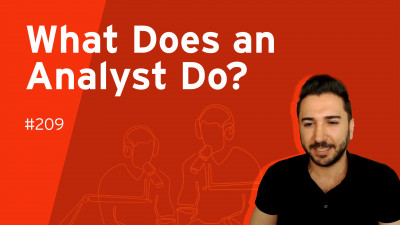Last week I attended the Oracle Open World Europe 2019 in London. At this event Andrew Sutherland VP of technology told us that security was one of the main reasons why customers were choosing the Oracle autonomous database. This is interesting for two reasons firstly it shows that security is now top of mind amongst the buyers of IT systems and secondly that buyers have more faith in technology than their own efforts.
The first of these reasons is not surprising. The number of large data breaches disclosed by organizations continues to grow and enterprise databases contain the most valuable data. The emerging laws mandating data breach disclosure, such as GDPR, have made it more difficult for organizations to withhold information when they are breached. Being in a position of responsibility when your organization suffers a data breach is not a career enhancing event.
The second reason takes me back to the 1980s when I was working in the Knowledge Engineering Group in ICL. This group was working as part of the UK Government sponsored Alvey Programme which was created in response to the Japanese report on 5th generation computing. This programme had a focus on Intelligent Knowledge Based Systems (IKBS) and Artificial Intelligence (AI). One of the most successful products from this group was VCMS a performance advisor for the ICL mainframe. This was commercially very successful with a large uptake in the VME customer base. However, one interesting observation was that it boosted customers to upgrade their mainframes. It became apparent that the buyers of these systems were more ready to accept the advice from VCMS than from the customer service representatives.
From an AI point of view managing computer systems is relatively easy. This is because computer systems are deterministic, and their behaviour can be described using rules. These rules may be complex and there may be a wide range of circumstances that need to be considered. However, given the volume of metered data available and the rules an AI system can usually make a good job of optimizing performance. Computer systems manufacturers also have the knowledge needed.
That is not to diminish the remarkable achievements by Oracle to make their database systems autonomous. Mark Hurd, CEO of Oracle (who had to present via a satellite link because he had been unable to renew his passport because of the US government shutdown) described how the Net Suite team had spent 15 years creating 9,000 specialized table indexes for performance. The autonomous database created 6,000 indexes in a short time, and which improved performance by 7%.
Oracle’s strategy for AI extends beyond the autonomous database. Melissa Boxer, VP Fusion Adaptive Intelligence, described how Oracle Adaptive Intelligent Apps (Oracle AI Apps) provide a suite of prebuilt AI and data-driven across Customer Experience (CX), Human Capital Management (HCM), Enterprise Resource Planning (ERP), and Manufacturing. These use a shared data model to provide Adaptive Intelligence and Machine Learning across all the different pillars. They include a personalized user experience OAUX and intelligent chat bots.
So, to return to the original question – can Autonomous Systems (as defined by Oracle) improve security posture? In my opinion the answer is both yes and no. The benefits of autonomous systems are that they can automatically incorporate patches and implement best practice configuration. Since many data breaches stem from these areas this is a good thing. They can also automatically tune themselves to optimize performance for an individual customer’s workload and, since they discover what is normal, they can potentially identify abnormal activity.
The challenge is that AI technology is not yet able to defend against adversarial activity. Machine Learning is only as good as its training and, at the current state of the art, it is does not provide good explanations for the conclusions reached. This means that sometimes, the learnt behavior contains flaws that can be exploited by a malicious agent to trick the system into the wrong conclusions. Given that cyber crime is an arms race and we must assume that the cyber adversaries are working with the same technology we must assume that this will be deployed against us as well as for us.
For security – AI can help to avoid the simple mistakes – to defend against a concerted attack still needs a human in the loop.











































